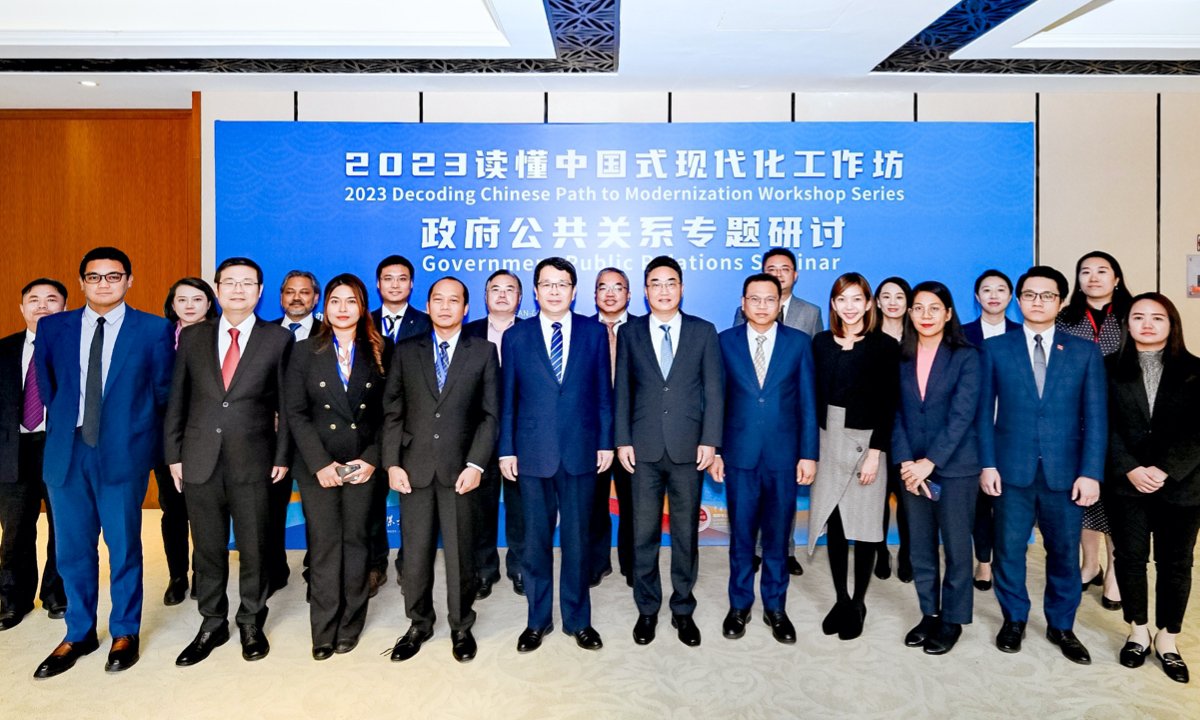Seminar Explores Chinese Modernization and its Lessons for ASEAN Nations
Beijing: The recent seminar organized as a part of the “Decoding Chinese Path to Modernization Workshop Series” by the School of Government and Public Affairs at the Communication University of China (CUC) served as a platform to explore the nuances of China’s modernization journey and its implications for the modernization of ASEAN member states.
Held in Beijing, the seminar saw the participation of experts from China and diplomats from ASEAN countries. Zhang Shuting, the President of CUC, addressed the gathering and spoke of the global interest in Chinese-style modernization, emphasizing that the path China has chosen for its development has been closely observed, not just domestically but internationally as well. “The seminar seeks to bridge the understanding gap and promote mutual trust between China and ASEAN countries,” Zhang mentioned, underlying the objective of fostering enhanced international cooperation.
To ensure a practical understanding, participants of this seminar will get an opportunity for a hands-on exploration. A three-day field visit to Quzhou, in East China’s Zhejiang Province, is on the cards. The purpose of this trip is to study Quzhou’s methods of blending cultural revival with urban renewal, which will offer valuable insights for other developing cities and countries.
Shi Zhongjun, Secretary-General of the ASEAN-China Center (ACC), echoed the deepening ties between China and ASEAN nations, highlighting their shared cultural lineage and interwoven interests. “The growing maturity in ASEAN-China relations is paving the way for a dynamic, substantial, and mutually beneficial partnership. This collaboration is instrumental in upholding the peace, stability, and prosperous trajectory of the Asia-Pacific region,” he remarked.
Liu Xinxin, Associate Professor at the CUC School of Government and Public Affairs, drew attention to the essence of urban renewal in China, bringing to the limelight three exemplary instances: Beijing’s Liangma River, Shanghai’s Tianzifang arts and crafts enclave, and Quzhou. Liu pointed out that these examples aren’t just about physical transformation. “These are narratives of cities that have faced modernization’s challenges head-on, with strategies that integrate culture, creativity, and branding. They are holistic tales of transformation encapsulating economic, cultural, and environmental evolution,” she explained.
Duan Yi from the Chinese Ministry of Education shared personal experiences, touching upon the larger goals of Chinese modernization, such as the harmony between humans and nature and the emphasis on peaceful development.
The seminar also saw an enlightening comparison between Chinese and Western modernization trajectories presented by Bi Jianlu from the China Global Television Network. “Chinese modernization is a blend of traditional values and culture with contemporary social progress. It stands on pillars like people-centric development, holistic prosperity, and a balanced emphasis on material and spiritual growth,” Bi elucidated. Contrasting this with the West’s approach, he highlighted that Western modernization often grapples with challenges like environmental crises and a capital-centric focus. “Chinese modernization, however, is geared towards global mutual benefits, steering clear of past exploitation paradigms,” Bi added.
Diplomats from ASEAN member states keenly shared their perspectives on absorbing lessons from China’s transformative journey. Seint Shwe Zin, First Secretary from the Embassy of Myanmar in China, reminisced about his earlier visit to Beijing in 2015 and expressed admiration for the rapid transformations he witnessed in areas like Sanlitun. “Witnessing such evolution as a representative of an ASEAN country instills hope and inspiration,” he said.
Highlighting CUC’s prominence, the gathering was informed that this esteemed institution has nurtured connections with over 200 universities, research entities, and media institutes globally. With the 70th anniversary of CUC’s establishment coinciding with the ASEAN-China Year of People-to-People Exchanges next year, Zhou Ting, dean of the CUC School of Government and Public Affairs, emphasized the workshop series’ intent. “Our goal is to harness this timing to enhance connectivity, collaboration, and to lay the foundation for a joint China-ASEAN future,” he concluded.
Read More:
